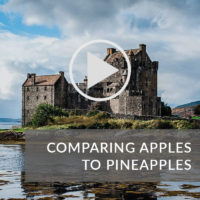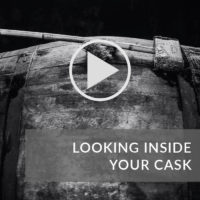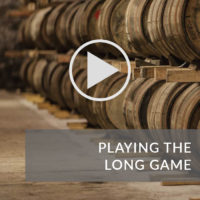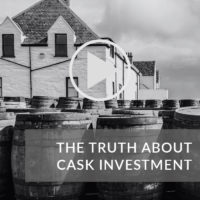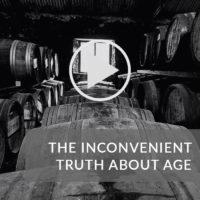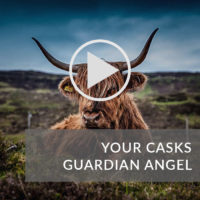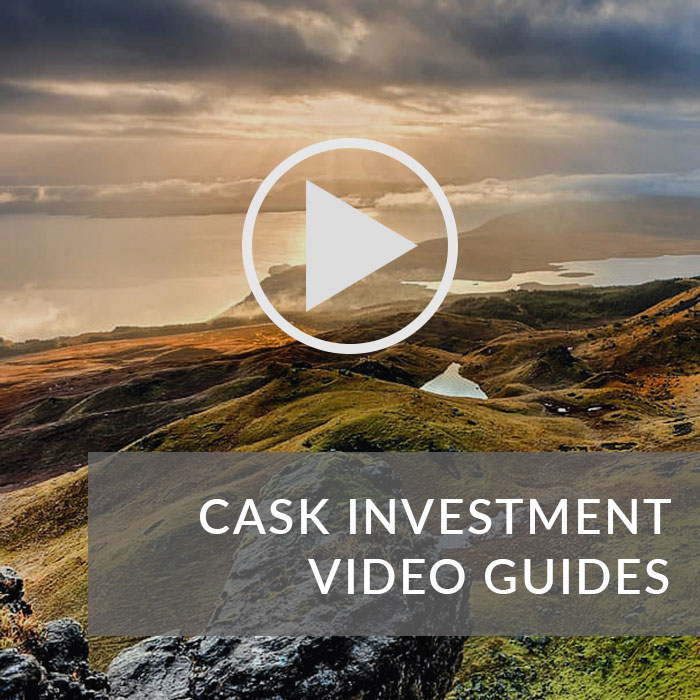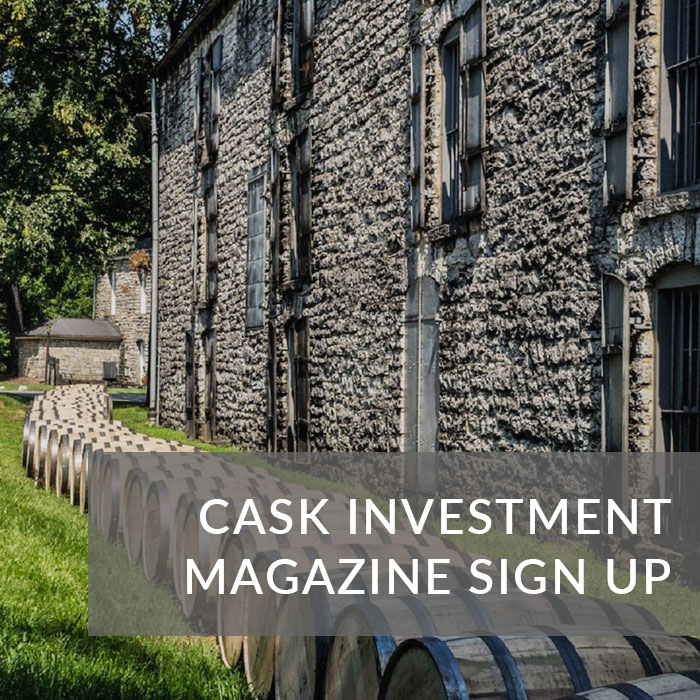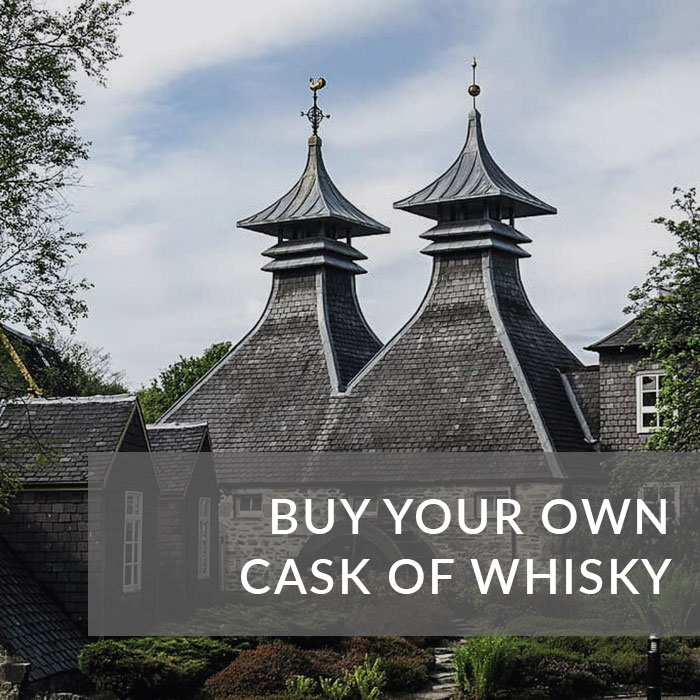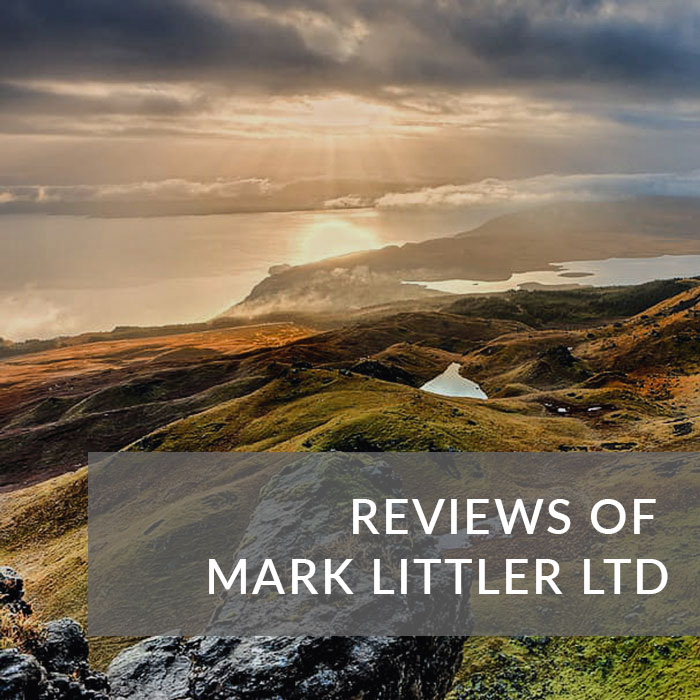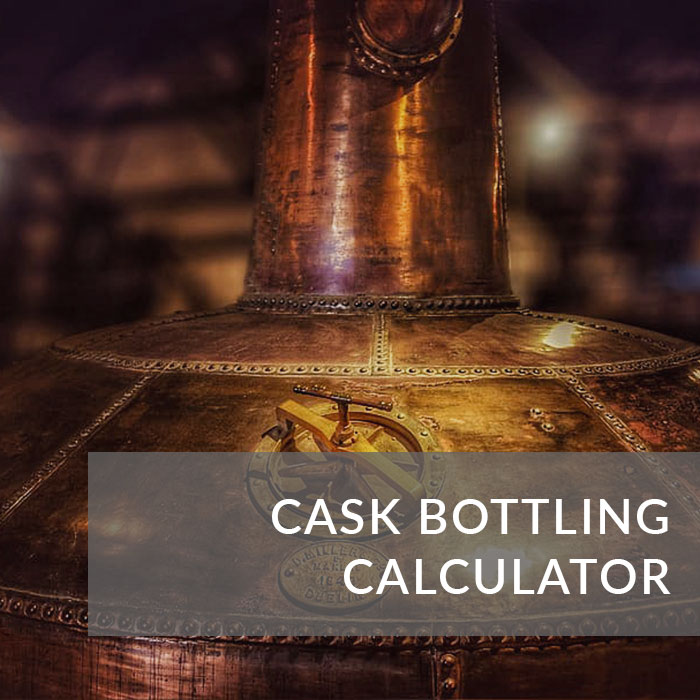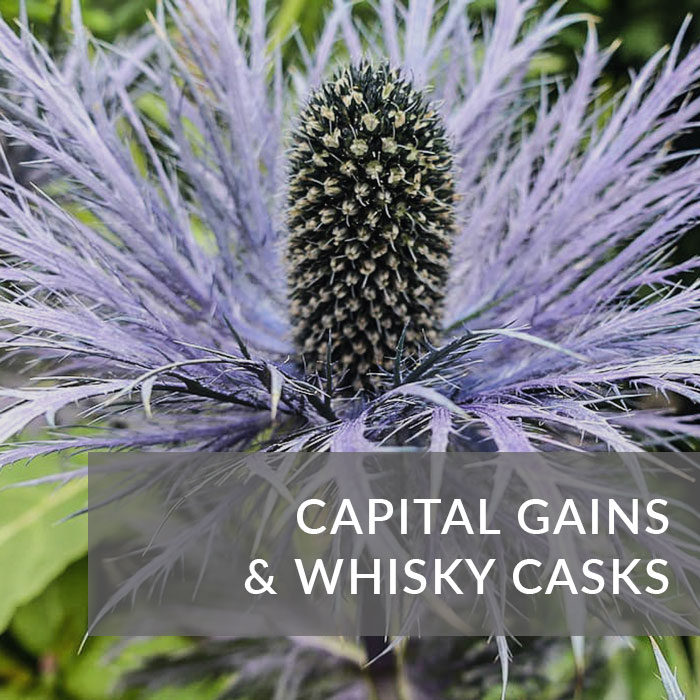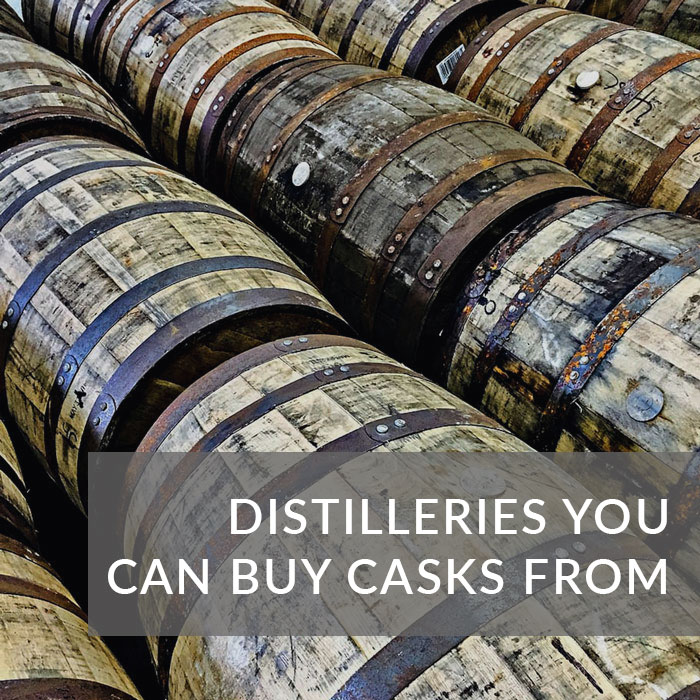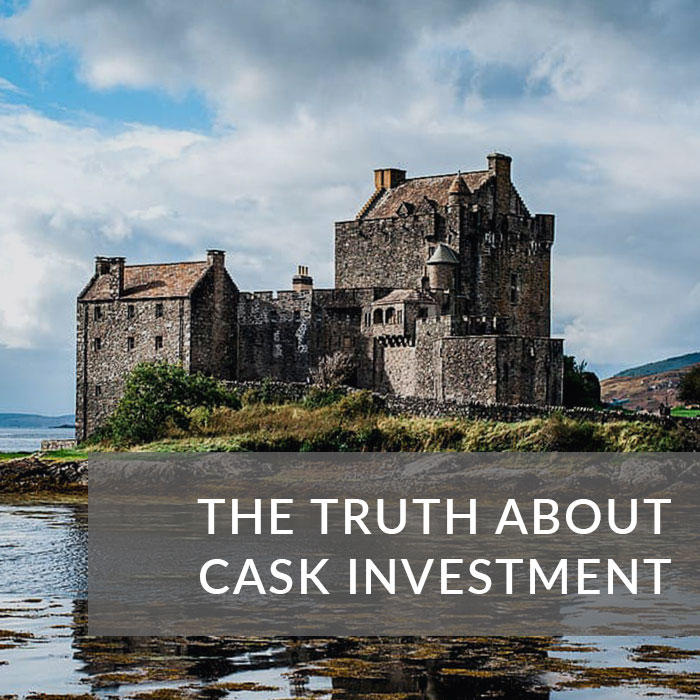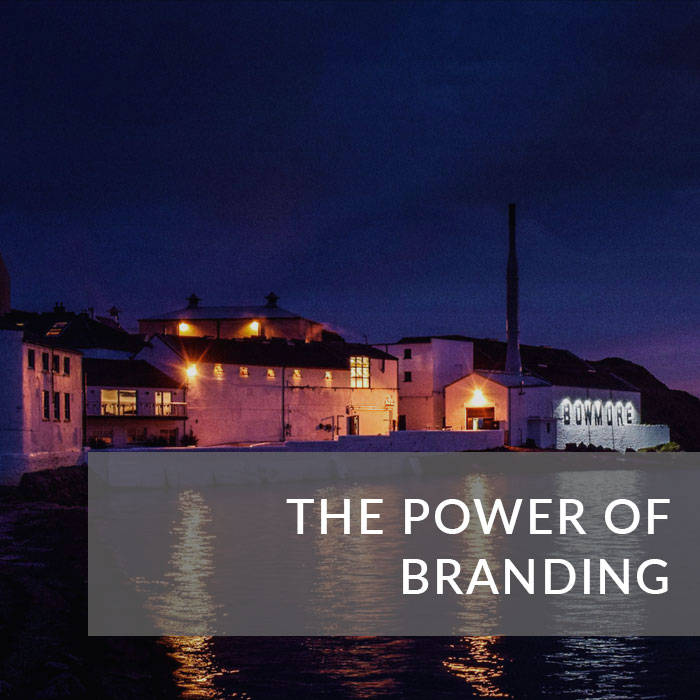WHISKY CASKS &
THE KNIGHT FRANK INDEX
Investment in bottles of rare whisky cannot be compared to investing in casks of whisky; bottles and casks are in the same family but are a fundamentally different product
Watch Our Cask Investment Video Guides
Whisky Casks and the Knight Frank Index
Video Guide 1 of 10
In 2018 bottles of rare whisky were included in the Knight Frank Luxury Investment Index for the first time after they outperformed gold, art and jewellery. While their continued presence in the index confirms that whisky is now considered a luxury asset, you cannot use the success of whisky bottles to indicate how a cask of whisky might perform as an asset.
Like comparing bricks to houses
Bottles and casks of whisky are fundamentally different products, and comparing them is like comparing buying bricks and mortar versus purchasing a luxury, penthouse apartment in a nice part of London: One can be used to make the other, but without the other key ingredients that go into making a premium, sought-after product (having the right land, architects, builders, decorators etc. in the case of an apartment and having the right name to put on your bottle and the correct licences in the case of whisky) you simply have a large quantity of building material, which you probably need to pay to store.
Collecting bottles of rare whisky
Rare whisky bottles are not bought to consume. They are purchased as a status symbol, and that status is determined by the branding of the bottle and the scarcity, which give the bottle a subjective value. Collectable bottles are usually limited edition, no longer available and by and large they are released by the distillery.
For example, in 2019 a bottle of whisky broke the record for the most expensive bottle of whisky sold at action by hammering at £1.5 million. It was a bottle of Macallan distilled in 1926 and one of just 40 bottles (and even less of that particular label style). It is impossible to compare this product to your modern cask of whisky. Even if your cask was a 1926 Macallan it is unlikely that you could sell the bottles from it for the price achieved for the record breaking bottles because you would not be selling it as the distillery; brand makes a big difference to the eventual value of a bottle.
Send me my free cask buying guide
Buying a cask of whisky
When you buy a cask of whisky you are simply buying whisky. The whisky is likely to go up in value as historically the value of whisky increases with age (to a point), because of the nature of the product:
- The spirit is considered to improve with age
- It gets scarcer with age as most barrels are used at 12-years-old or younger
- The quantity within each cask decreases due to natural evaporation
However, it is unlikely that you have the brand necessary to drive that whisky into the status of a collectors’ item; if you compare the value of official distillery bottles to independent bottler releases you will see a marked difference in value, there is an additional step down for privately bottled releases.
Additionally your product is not particularly exclusive; you may only have one cask, but a hogshead with 210 bulk litres has the potential to fill 300 standard 700ml bottles at cask strength. It is also possibly one of many casks filled and released to the public at the same time (although this can be mitigated by buying from a broker such as ourselves who source one off casks rather that buying in bulk and re-selling to the public.
The case of your cask being one of many can also be improved by keeping your whisky for long enough – less than 10% of whisky casks filled in any one year remain after 12 years, which is one of the reasons why the value of whisky has always increased with age, and is why we recommend planning to buy young casks and keep them for 10-15 years.
Then why invest in casks of whisky?
A whisky cask can be a solid asset and produce healthy returns. The above information is intended to allow you to distinguish between the two different ways of investing in whisky; bottles versus casks, to ensure that you are making the right investment for you.
We have sold casks of whisky for our customers for up to £147,000 for a single cask purchased for £3,000. Those customers bought the right whisky, kept it for the optimum amount of time and sold it at the correct time for the market, with a broker who was able to get the best price.
You can find out more about buying a cask of whisky with Mark Littler Ltd. by signing up to receive our Cask Buying Guide; a free magazine that goes through everything you need to consider when you are looking at investing in whisky casks.
Advice You Can Trust
Since 2016 our aim has been simple – to provide a trustworthy source of information to help people make sound decisions when they are selling their items. To date we have sold millions of pounds worth of antiques and whisky (both casks and bottles) for our clients.
We’re now applying this same logic to help people invest in casks of whisky. Rather than providing sales pitches disguised as educational material, it’s our mission to become the ultimate source of open and honest cask investment guidance.
The information you will find in OUR GUIDE, CASK VIDEOS, BLOG and CALCULATOR is all designed to help you make a balanced decision. We would rather you knew all the facts and didn’t buy a cask than buy one based on ‘fake news’.
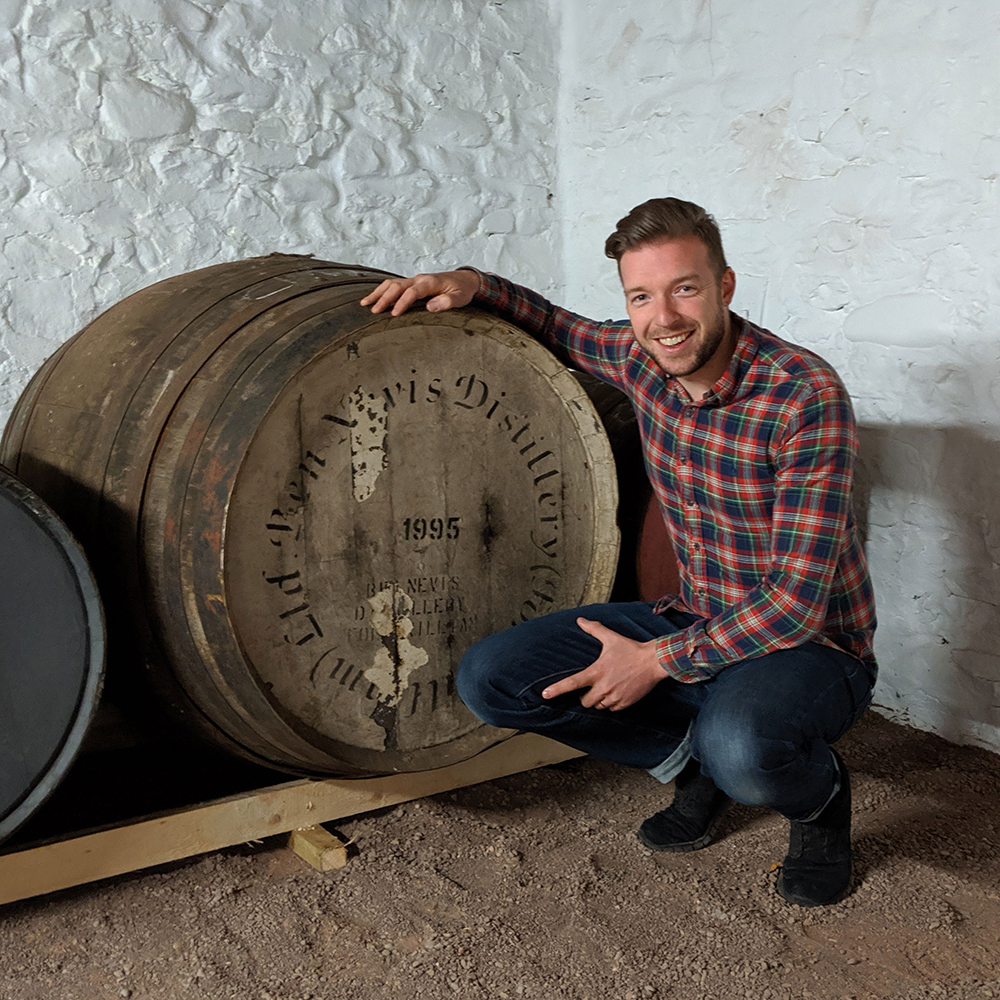
Investment in bottles of rare whisky cannot be compared to investing in casks of whisky; bottles and casks are in the same family but are a fundamentally different product
Whisky Casks and the Knight Frank Index
Video Guide 1 of 10
In 2018 bottles of rare whisky were included in the Knight Frank Luxury Investment Index for the first time after they outperformed gold, art and jewellery. While their continued presence in the index confirms that whisky is now considered a luxury asset, you cannot use the success of whisky bottles to indicate how a cask of whisky might perform as an asset.
Like comparing bricks to houses
Bottles and casks of whisky are fundamentally different products, and comparing them is like comparing buying bricks and mortar versus purchasing a luxury, penthouse apartment in a nice part of London: One can be used to make the other, but without the other key ingredients that go into making a premium, sought-after product (having the right land, architects, builders, decorators etc. in the case of an apartment and having the right name to put on your bottle and the correct licences in the case of whisky) you simply have a large quantity of building material, which you probably need to pay to store.
Collecting bottles of rare whisky
Rare whisky bottles are not bought to consume. They are purchased as a status symbol, and that status is determined by the branding of the bottle and the scarcity, which give the bottle a subjective value. Collectable bottles are usually limited edition, no longer available and by and large they are released by the distillery.
For example, in 2019 a bottle of whisky broke the record for the most expensive bottle of whisky sold at action by hammering at £1.5 million. It was a bottle of Macallan distilled in 1926 and one of just 40 bottles (and even less of that particular label style). It is impossible to compare this product to your modern cask of whisky. Even if your cask was a 1926 Macallan it is unlikely that you could sell the bottles from it for the price achieved for the record breaking bottles because you would not be selling it as the distillery; brand makes a big difference to the eventual value of a bottle.
Send me my free cask buying guide
Buying a cask of whisky
When you buy a cask of whisky you are simply buying whisky. The whisky is likely to go up in value as historically the value of whisky increases with age (to a point), because of the nature of the product:
- The spirit is considered to improve with age
- It gets scarcer with age as most barrels are used at 12-years-old or younger
- The quantity within each cask decreases due to natural evaporation
However, it is unlikely that you have the brand necessary to drive that whisky into the status of a collectors’ item; if you compare the value of official distillery bottles to independent bottler releases you will see a marked difference in value, there is an additional step down for privately bottled releases.
Additionally your product is not particularly exclusive; you may only have one cask, but a hogshead with 210 bulk litres has the potential to fill 300 standard 700ml bottles at cask strength. It is also possibly one of many casks filled and released to the public at the same time (although this can be mitigated by buying from a broker such as ourselves who source one off casks rather that buying in bulk and re-selling to the public.
The case of your cask being one of many can also be improved by keeping your whisky for long enough – less than 10% of whisky casks filled in any one year remain after 12 years, which is one of the reasons why the value of whisky has always increased with age, and is why we recommend planning to buy young casks and keep them for 10-15 years.
Then why invest in casks of whisky?
A whisky cask can be a solid asset and produce healthy returns. The above information is intended to allow you to distinguish between the two different ways of investing in whisky; bottles versus casks, to ensure that you are making the right investment for you.
We have sold casks of whisky for our customers for up to £147,000 for a single cask purchased for £3,000. Those customers bought the right whisky, kept it for the optimum amount of time and sold it at the correct time for the market, with a broker who was able to get the best price.
You can find out more about buying a cask of whisky with Mark Littler Ltd. by signing up to receive our Cask Buying Guide; a free magazine that goes through everything you need to consider when you are looking at investing in whisky casks.
Advice You Can Trust
Since 2016 our aim has been simple – to provide a trustworthy source of information to help people make sound decisions when they are selling their items. To date we have sold millions of pounds worth of antiques and whisky (both casks and bottles) for our clients.
We’re now applying this same logic to help people invest in casks of whisky. Rather than providing sales pitches disguised as educational material, it’s our mission to become the ultimate source of open and honest cask investment guidance.
The information you will find in OUR GUIDE, CASK VIDEOS, BLOG and CALCULATOR is all designed to help you make a balanced decision. We would rather you knew all the facts and didn’t buy a cask than buy one based on ‘fake news’.

